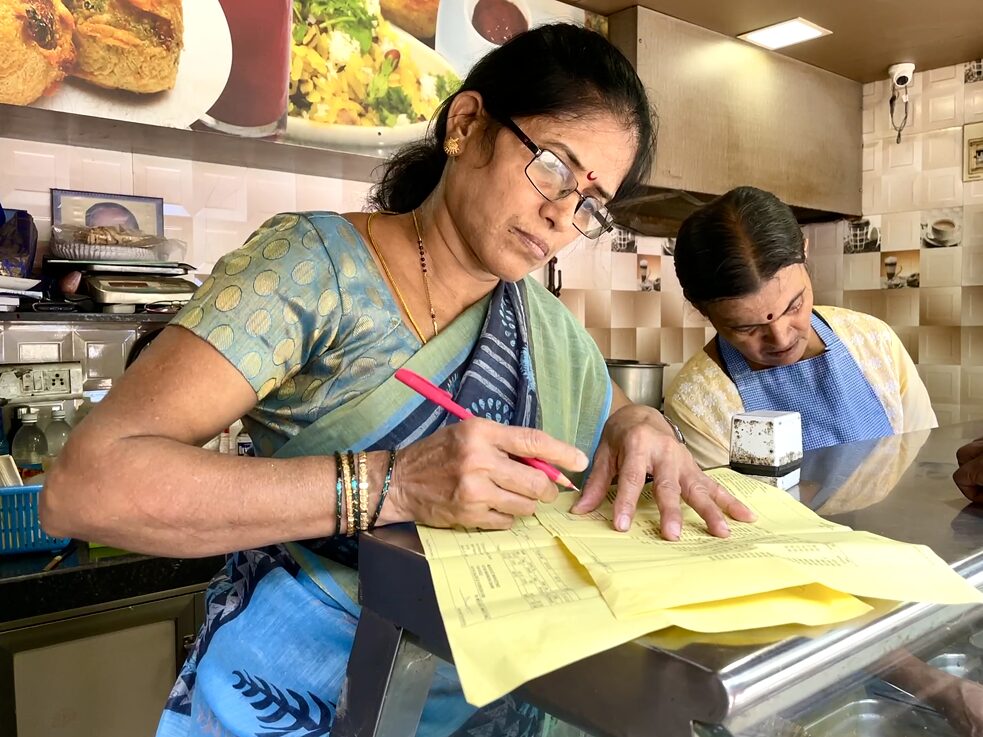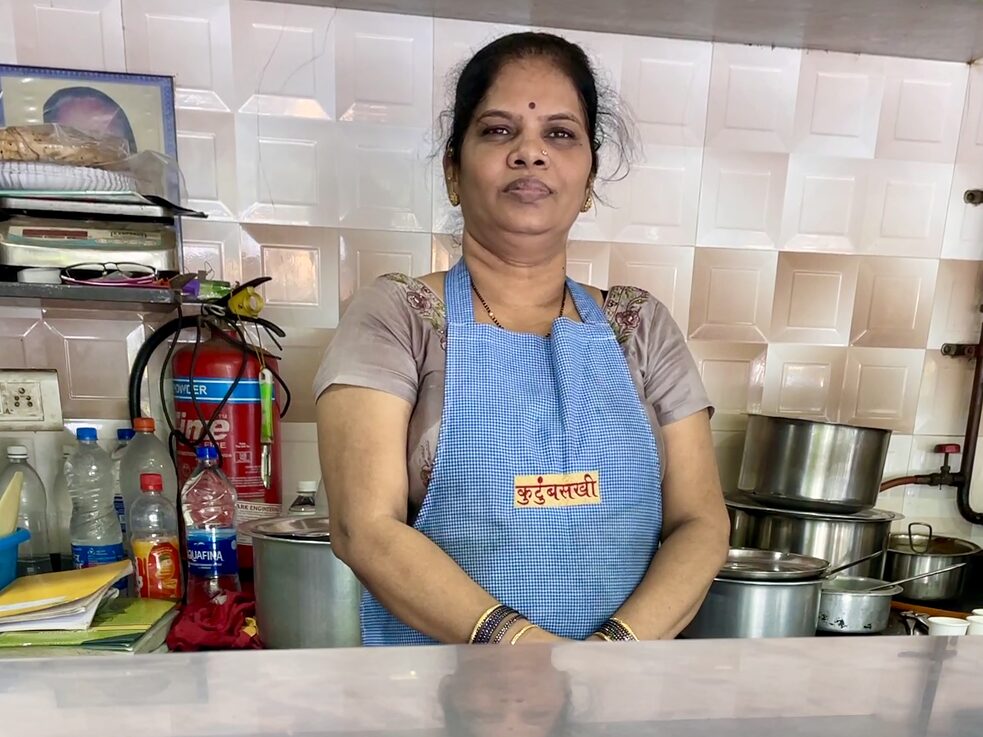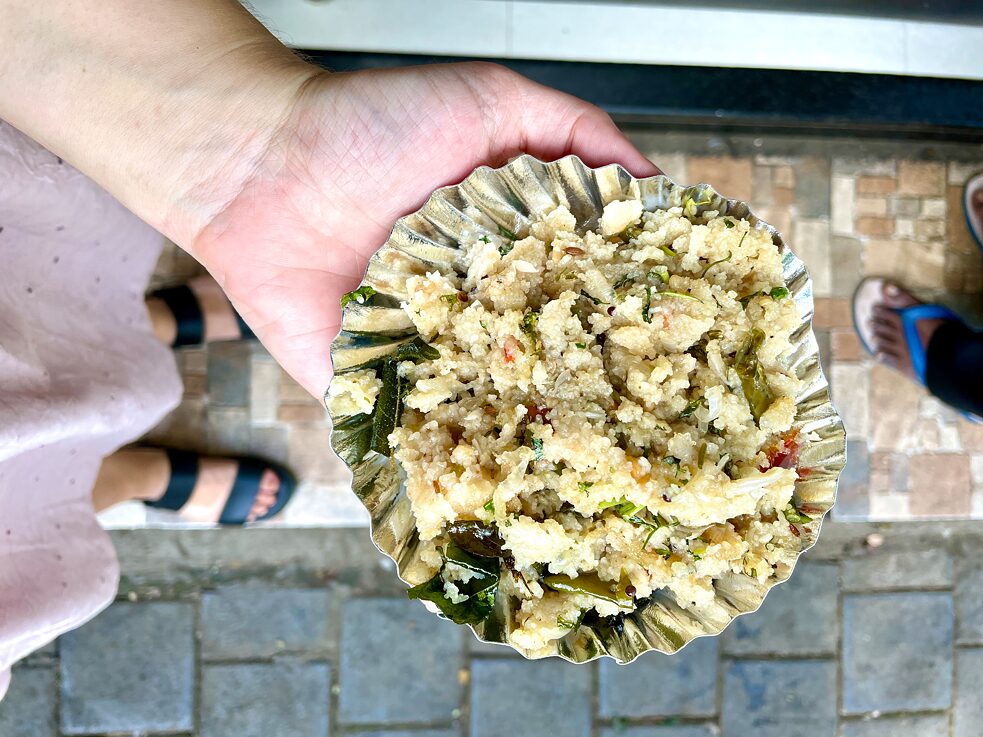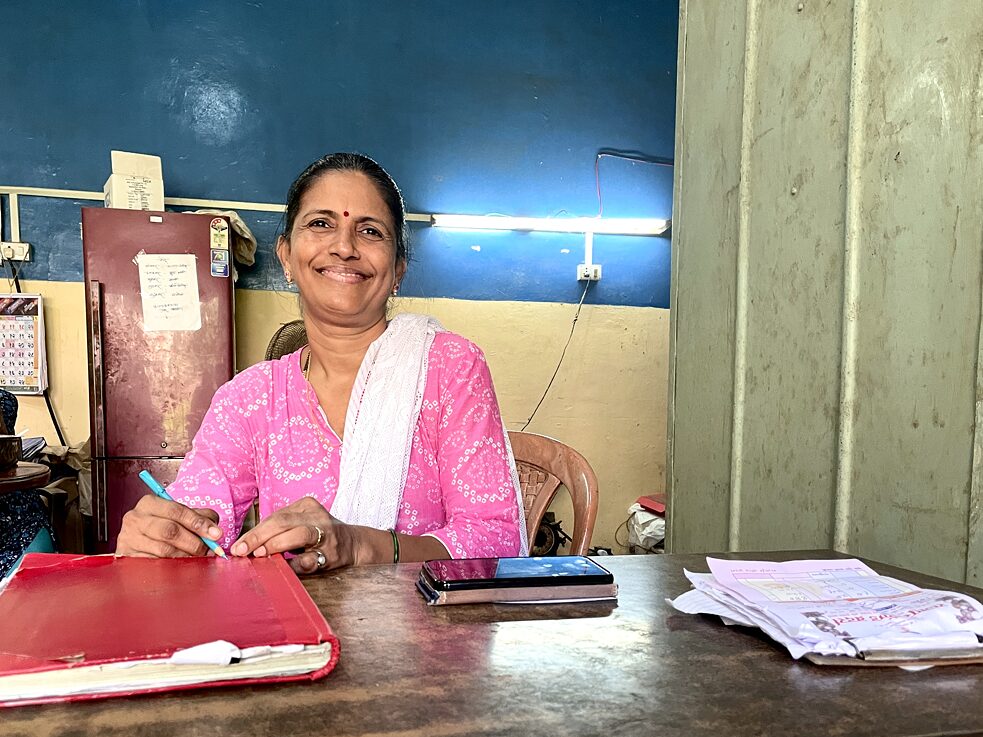Community in India The way to independence is through the stomach
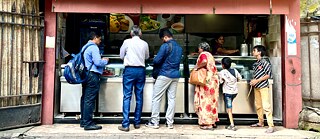
Kutumb Sakhi snack bar in Mumbai
| Foto (detail): © Natalie Mayroth
There are plenty of snack bars in Mumbai, but very few are run by women. The women’s cooperative Kutumb Sakhi is an exception. Not only do they serve tasty home cooking here, but women are also given the opportunity to support their families.
It is rare to see women working in a snack bar in this city with its millions of inhabitants. Often, women cook at home for the traditional Indian lunch delivery services or prepare flatbread on their gas stoves to be sold in kiosks. But you will not find many women behind the counter. Hardly any women are employed as cooks in restaurants or in the service sector, except in high-class hotels. But things are different in Mumbai’s Fort district between the court, university and press club. Here at the Kutumb Sakhi cooperative, women work behind the counter, cook and do the book-keeping. In all, seven women work at the Kutumb Sakhi (meaning “family friend”) in Fort.
The Fort branch is one of five in Mumbai selling all kinds of hot snacks, such as the famous vada pav, a potato fritter in a wheat roll. Today, Ranjana Pawar is on late shift. She looks strict, but warm-hearted. She and her colleagues are so loud and cheerful that you would never guess that some of them have it tough in society, due to bereavement or divorce. Pawar proudly wears her blue apron with the cooperative’s logo. There is something resolute about these women. You can see right away that there is no messing with them.
A home for women
Work is Pawar’s top priority. After the sudden death of her husband, it was her anchor. “While my husband was alive, I looked after the household,“ she says. That’s more than ten years ago. As a lone mother, she looked for a job to be able to provide for her children, who were still young. ”A relative found me a job,“ she says. Her first job was in a nearby street food stall where a few women worked alongside the men. ”But as a single woman, I knew that I would feel more comfortable just being with women,” she says. When she heard about Kutumb Sakhi, she changed jobs right away. “The women here have become part of my family,” says Pawar.She is not the only one who feels at home at Kutumb Sakhi. 53-year-old Sauli Salunkhe is the manager of the Kutumb Sakhi Cooperative and works at its headquarters a mile away. She has been in the organisation for 15 years. ”I started by selling and worked my way up to become a manager,” she says. ”Women do all kinds of work here, depending on their interest, knowledge and skills,” says Salunkhe. The women who work at Kutumb Sakhi make a major contribution to their families’ income. One of the criteria for employment here is that it enables women to be independent and provide financial support for their families.
The women’s imitative Kutumb Sakhi was founded by sociology professor Dr. Chandrakala Hate together with Vandana Navalkar, a social worker, more than 40 years ago. In 1977, they conducted a survey which established that lower-middle-class housewives wanted to work, but lacked opportunities to do so. Their plan was for women to cook and sell local dishes from Maharashtra at affordable prices. Their business idea took off.
Moving ahead in spite of hurdles
But Kutumb Sakhi is more than just an initiative. It is backed by a cooperative that gives women a perspective. Many of its members are lone mothers, divorced women and widows. “When my mother retired, I put all my effort into the organisation,” says 57-year-old Reshma Navalkar, Vandana Navalkar’s daughter. For her, it is important to keep her mother’s legacy going, even after her death, Vandana Navalkar and Chandrakala Hate were associated with Kutumb Sakhi all their lives. Now, Navalkar‘s daughter is carrying the business forward, although things are not as easy as they used to be:“After the pandemic it felt like a reset,” says Navalkar. For several months, she had to close the shops. But giving up was inconceivable. Gradually, they reopened the snack bars, although some schools and offices remained closed for many more months. India initially pursued a hard anti-COVID policy. In spring 2020, a strict lockdown was announced, which was only gradually relaxed. ”It was nearly a year before we could get operations up and running again. It was a hard time for us,” she recalls. Fewer customers.
So now the maxim is to work twice as hard. They have divested a few branches, but since then, there has been an increase in takeaway business, says Navalkar. In the mornings, she is to be found at headquarters, in S.K. Patil Park. While she does administrative work, her employee Sauli Salunkhe does desk work in the afternoons and takes care of the daily accounts. During this time, customers keep coming in to buy snacks and tea until they close at seven o’clock.
The fates of the women of Kutumb Sakhi give Reshma Navalkar confidence to keep going. ”They are the most important reason,” she says. Behind her desk, a framed photograph reminds her of her mother Vandana Navalkar. Her idea is being carried on by her daughter and all the other women.
